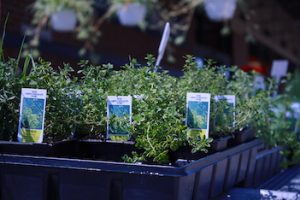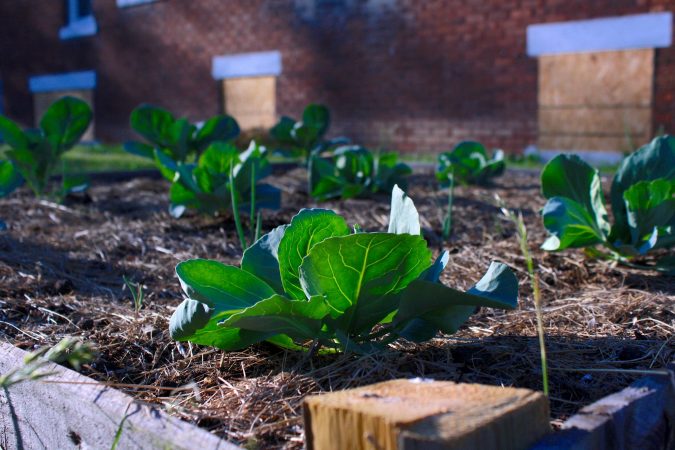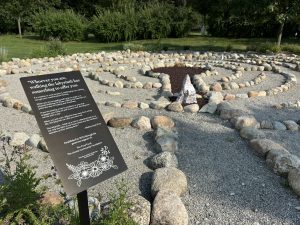Upon hearing terms like zero waste and sustainability, I am often confronted by the seeming unattainability of them actualizing along with the dread of an expectation to change my entire lifestyle. In reality, however, taking actions to being environmentally conscious may be simpler than perceived. It’s really as simple as being conscious of what we, as individuals, do. Whether that be with our purchases, trash, travel, or to our homes. So, with the ever-growing buzz around sustainability, know that steps to move forward are simple, you can take them one step at a time. It doesn’t mean changing everything, it instead means making small, everyday decisions that spark change in others, resulting in good repercussions worldwide. With this in mind, here are six simple ways to become more sustainable in your home.
PURCHASE BULK GOODS
Purchasing food in bulk is a fantastic way to buy only what is needed, which minimizes waste, as well as cuts down on unnecessary packaging often found in prepackaged food. Stores like Bulk Food Marketplace, Western Market, and Rocky’s are a few local stores with bulk bin options, ranging from grains and nuts to candies. However, as the inability to bring our own bags to stores continues because of the pandemic, a helpful tip is to ask for small paper bags, usually used for wine bottles and the like, from the check out to put the loose goods in for the ride home.
SHOP LOCAL
“Shop Local,” the mantra, has spread far and wide over the past few years, but it is truly a key to making steps toward a more sustainable life. Making a point to purchase handmade or locally made items cuts down on overhead, decreases the possible violation of labor laws, and lessens emissions. A great way to do this is to check out local farms in the area. A lot of farms and markets, including Fisheye farms and Eastern market, have sign up programs for weekly pickups of fresh produce or produce drive-throughs.
These contain a bunch of fresh vegetables that vary from week to week. An extra tip, if shopping local for you means grabbing takeout, then say no to plastic utensils and napkins. Even though most restaurants will instinctually place the plastic in your carryout bag, politely refuse the offer and this means there will be less trash for you to throw away, and you’ll help cut costs for restaurants as well.
UPCYCLE CRAFTS
If paper bags aren’t an option at your local store, you can upcycle plastic grocery bags into household items. My personal favorite is a woven jump rope, made by simply cutting bags into strips and braiding them together and duct taping the ends. I think it is an excellent craft that not only saves money, but can better your health as well.
GARDENING

FRESH THYME AT WESTERN MARKET
Greenhouses and nurseries are opening up so a great way to pass time and be more sustainable is to plant a mini garden. Eastern Market has a large assortment of herbs, vegetables, and flowers to choose from. They have reinstated their Saturday shop from 6 a.m. to 4 p.m. If outdoor gardening isn’t an option for you, herbs are reasonably easy to grow indoors and, as you harvest, will help save from excess plastic usage found in stores as well as carbon emissions from transporting fresh herbs to stores.
COMPOSTING
If you plan on starting a small garden, composting is a great way to help your garden and diminish waste in your home. There are three important things to keep in mind when starting—browns, greens, and water. Browns consist of twigs, branches, and dead leaves. These materials provide carbon to the compost. Greens consist of coffee grounds, grass clippings, vegetable waste, and fruit scraps. These items provide nitrogen. The last material, water, is important to provide moisture to the concoction, which helps break down the organic matter.
Some good items to start your compost with are hair, pet fur, lint, and tea bags. Keep in mind too that a lot of local restaurants and coffee shops sell their food and beverages in compostable packaging. Being aware of this and adding these items to the compost pile instead of the recycling bin is incredibly helpful to the planet. You may want to follow what Detroit Dirt is doing in terms of composting, making dirt is their business.
KNOWING WHAT TO KEEP
With the inability to recycle or return cans and bottles in a lot of areas, space can be infringed upon as our piles of plastic and metal grow in our homes. So, keeping in mind what the best items are to keep is incredibly helpful. A recycling program of the Michigan Department of Environment, Great Lakes, and Energy called Recycling Raccoons has put together an incredible database where searching for the item in question is locally pinpointed and quickly answered, making it that much easier for us to help clean our planet.























